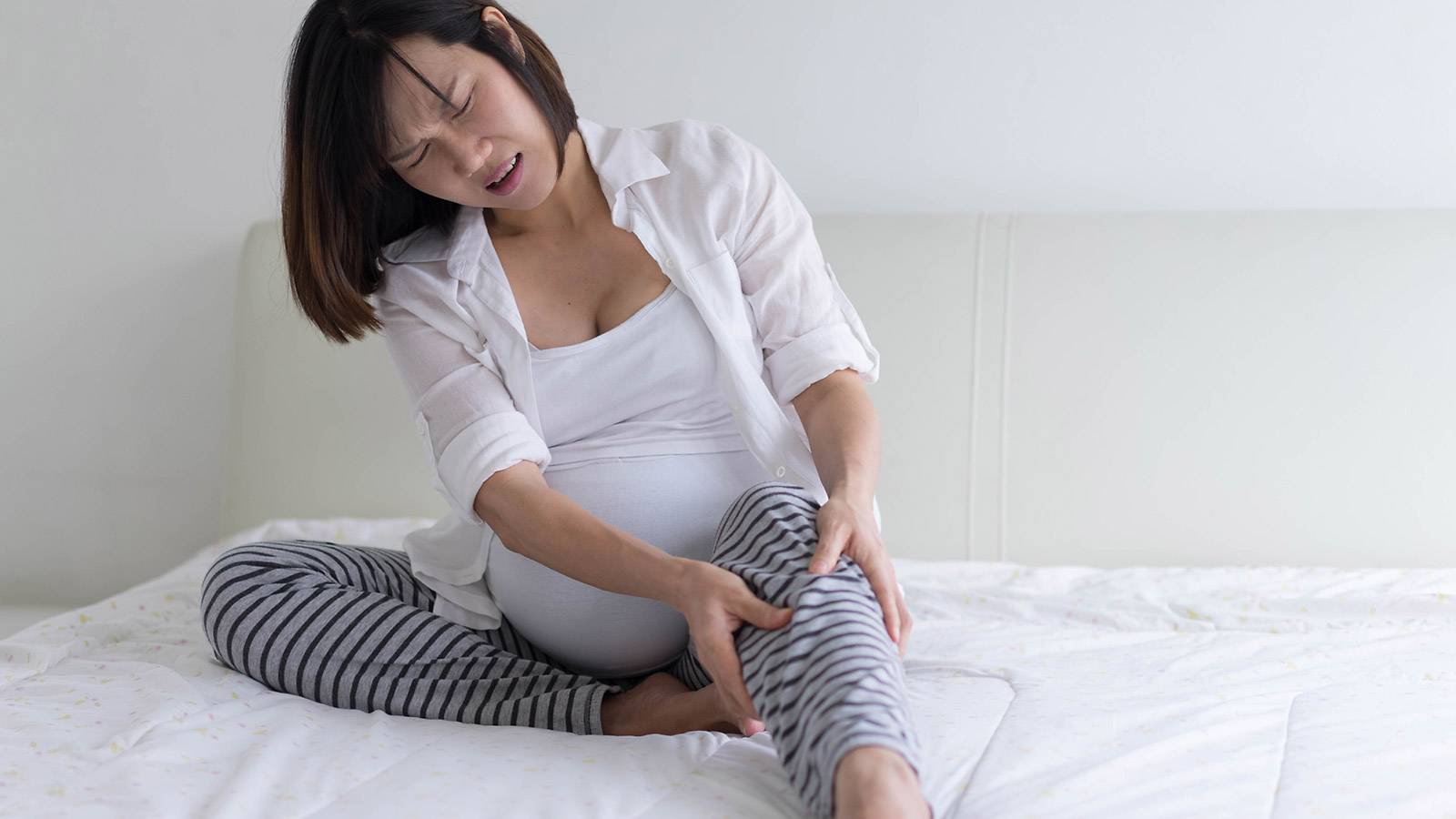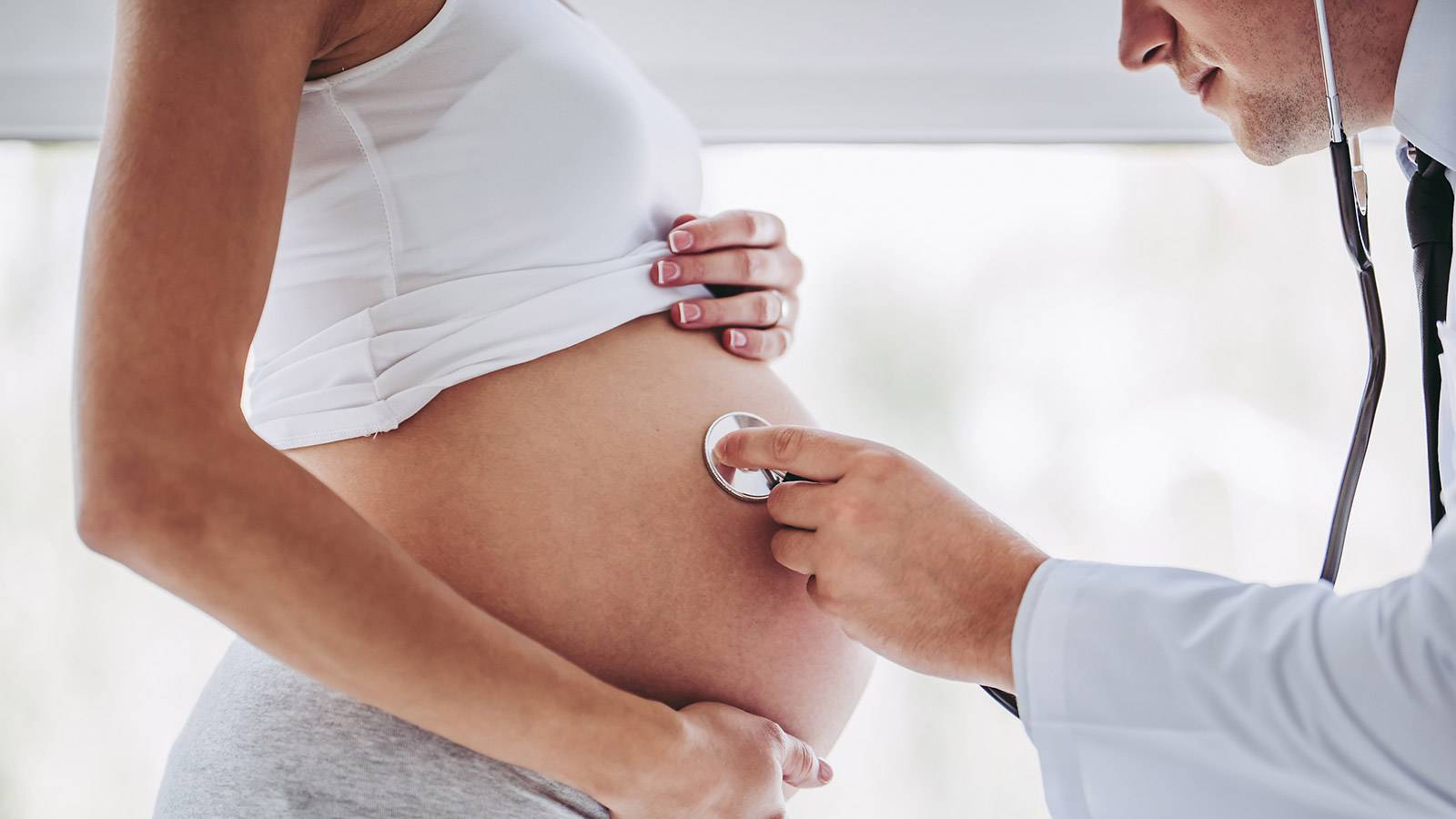When you’re pregnant, your chances of developing blood clots increases, so stay alert to these symptoms.

True or false, mums? Pregnancy brings about a slew of health issues you never thought about before. First, there’s the dreaded morning sickness ― you also cross your fingers it won’t develop into the more sinister, non-stop vomiting marathon that is Hyperemesis Gravidarum.
Next comes heartburn, tension headaches, swollen feet, and an overall feeling of uneasiness.
By the way, when you’re pregnant, you also have a greater risk of developing blood clots, when liquid blood clumps together to form jelly-like lumps of blood. In fact, did you know expectant women are six times more likely to get deep vein thrombosis (DVT)? This refers to a specific kind of blood clot that occurs in the deep veins of the legs.
Why pregnant women stand a higher risk of blood clots
The formation of blood clots is best explained using a medical theory called the Virchow's triad, says SmartParents ob-gyn expert Dr Christopher Chong. “Clotting increases in situations where the blood stays still, also known as statis; where it clots easily, also known as hypercoagulability, and when your body has experienced damage to its blood vessels,” Dr Chong explains.
“Clotting increases in situations where the blood stays still, also known as statis; where it clots easily, also known as hypercoagulability, and when your body has experienced damage to its blood vessels.”
Your chances of forming clots is incredibly high during pregnancy as you’ll fall under all three categories of the Virchow's triad. First, you are in a constant state of hypercoagulability because of ever-fluctuating hormonal changes. Next, stasis occurs if you’re taking a long trip on a plane or bus. Last, your risk of blood vessel damage increases with surgeries, or if you have any of the following health problems:
* Autoimmune disease.
* High blood pressure.
* Severely obese.
* Are a chronic smoker.
* Abuse alcohol.
* Have uncontrolled diabetes.
* Are pregnant with multiples.
* Have hypercoagulation problems.
This essentially puts pregnant women at the top of the list for blood clot risks. By the way, you’re more susceptible to clots in your third trimester because your hormones are really out of whack and many mums-to-be also tend to go on prolonged bed rest then. If you’ve had a C-section, you’re also at risk of developing a clot post-partum, especially during the first six weeks.
Sounds scary, but keep in mind that only a small percentage of women suffer from pregnancy-related blood clots. Dr Chong sees less than one patient a year on average with this condition.
“This may be due to efforts and ways to prevent clotting such as limiting Virchow’s triad and educating the patient,” he notes.
Signs and symptoms of pregnancy-related blood clots
Early signs of blood clots include pain and swelling in the calves. When it worsens, you will feel a tightness in your chest, be breathless and have difficulty breathing. Unfortunately, these are also common pregnancy symptoms, which is why many women don’t take the signs too seriously.
Left undiagnosed and untreated, these blood clots could break free and travel through the bloodstream to the heart or lungs, causing a blockage known as a pulmonary embolism.
“The clot goes to the lungs and blocks respiration. Death is not uncommon when that occurs. For baby, the lack of oxygen will affect the brain and can result in a premature delivery with complications,” notes Dr Chong.

Blood clots can be prevented and treated easily if the problem is nipped in the bud. So, stay vigilant and look out for these additional signs.
* Do your veins look larger than usual?
* Does your leg feel a bit warm and hard where you suspect the clot might be?
If you’ve answered “yes” to one or both of these questions, see your doctor at once. They will confirm your diagnosis through an ultrasound ― sound waves are used to create pictures of blood flowing through the arteries and veins in the affected leg.
Who’s at higher risk of getting blood clots?
Once you fall pregnant, your gynae will usually take an assessment of your current health condition to figure out if you fall under the high-risk category of developing blood clots. You’ll be in the list of you have the following conditions, says Dr Chong.
* A family history of blood clots or DVT, as there’s a small hereditary link.
* Smoking or have smoked, which causes vascular damage
* Older than 35 ― older vessels are more prone to damage.
* Overweight, which causes vascular damage.
* Travelling long distance during pregnancy ― it’s a lethal combination of stasis and hypercoagulability.
* Expecting multiples, which worsens hypercoagulability.
* Leading a sedentary lifestyle or not moving enough.
For post-partum blood clots, these conditions will be taken into consideration…
* If you’ve had a C-section birth as it causes vascular damage.
* On extended bed rest after delivery.
* Heavy bleeding after childbirth or if you needed a blood transfusion during delivery.
Exercise regularly to keep your blood circulation going. If you’re currently smoking or consuming alcohol kick the habit, stat.
Treatment options
Blood clots are treated the same way as they are prevented, through the use of anticoagulation or blood-thinning medication. It comes in the form of an injection you administer to yourself twice a day for the rest of your pregnancy and for a month after delivery.
Heparin, a commonly-used anticoagulation, is safe to use during pregnancy because it doesn’t cross the placenta, so there is no risk to your baby. If you’re taking it after delivery, it won’t affect breastfeeding as it doesn’t get into your milk.
In really bad cases, Dr Chong says lung surgery is performed to remove the clot. Sometimes, the mum-to-be may even need to deliver her baby earlier, so as to save both lives.
Ways to avoid getting blood clots
If you’re pregnant and worried about developing clots, lower your risk by:
Maintaining a healthy lifestyle Exercise regularly to keep your blood circulation going. If you’re currently smoking or consuming alcohol kick the habit, stat.
Controlling existing medical conditions If you have any of the medical problems as stated above, such as high blood pressure or severe diabetes, talk to your doctor and work together to keep it under control.
Keeping hydrated Drink lots of fluids during your pregnancy to stay healthy and prevent your blood from clotting.
Observing best practices on long-haul flights Get up and stretch your legs every hour or two. Easiest way is to do a few laps up and down the aisle. When seated, use tight compression stockings. They mimic the pumping action of your muscles as you walk, forcing the blood upwards and keeping the circulation going.
Photos: iStock
Like us on Facebook and check SmartParents regularly for the latest reads!
In case you missed these stories…
What’s causing your recurrent miscarriages?
EXPERT ADVICE: Will I lose my baby if there's too much amniotic fluid?
Celeb mum-to-be Cheryl Wee: My pregnancy freed me from the jail in my head
